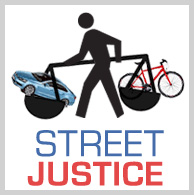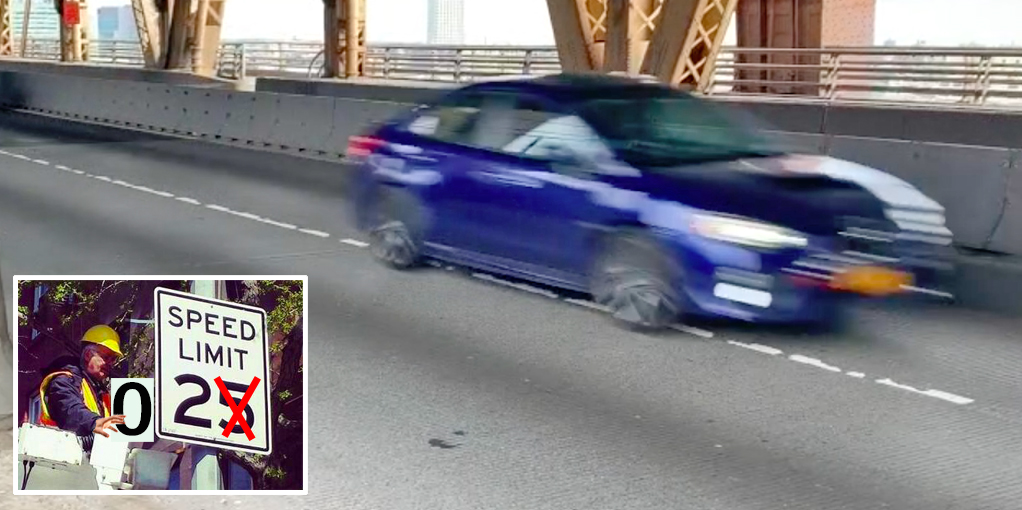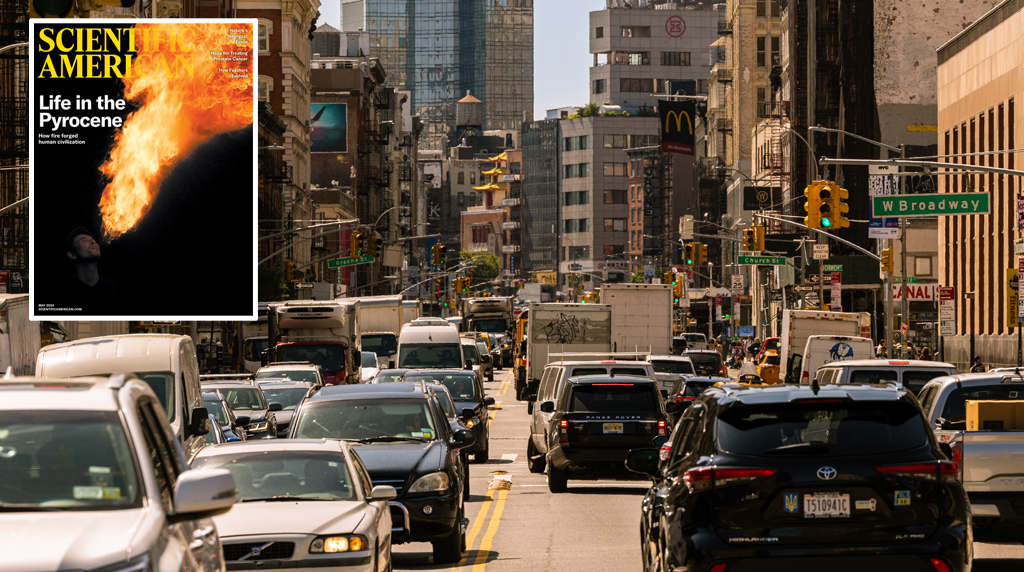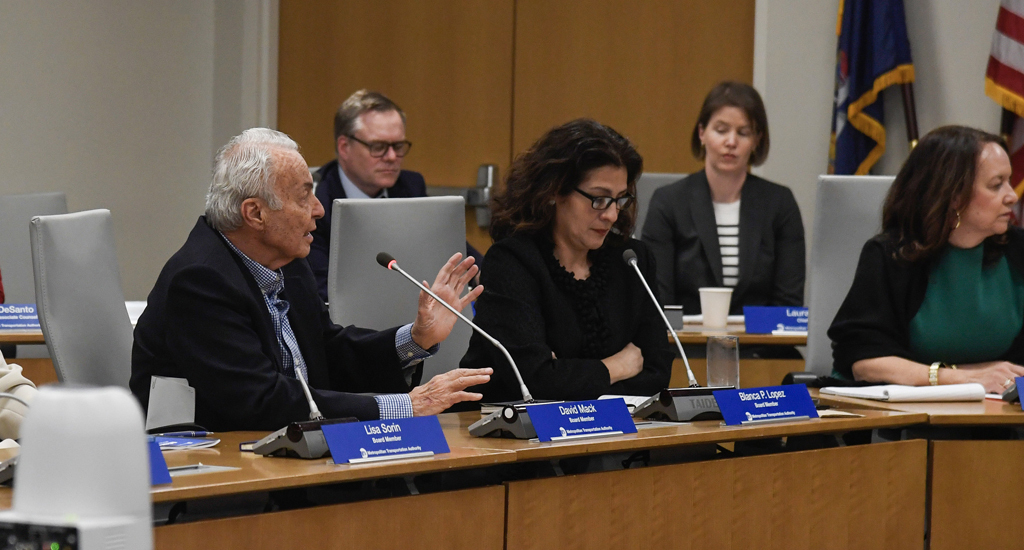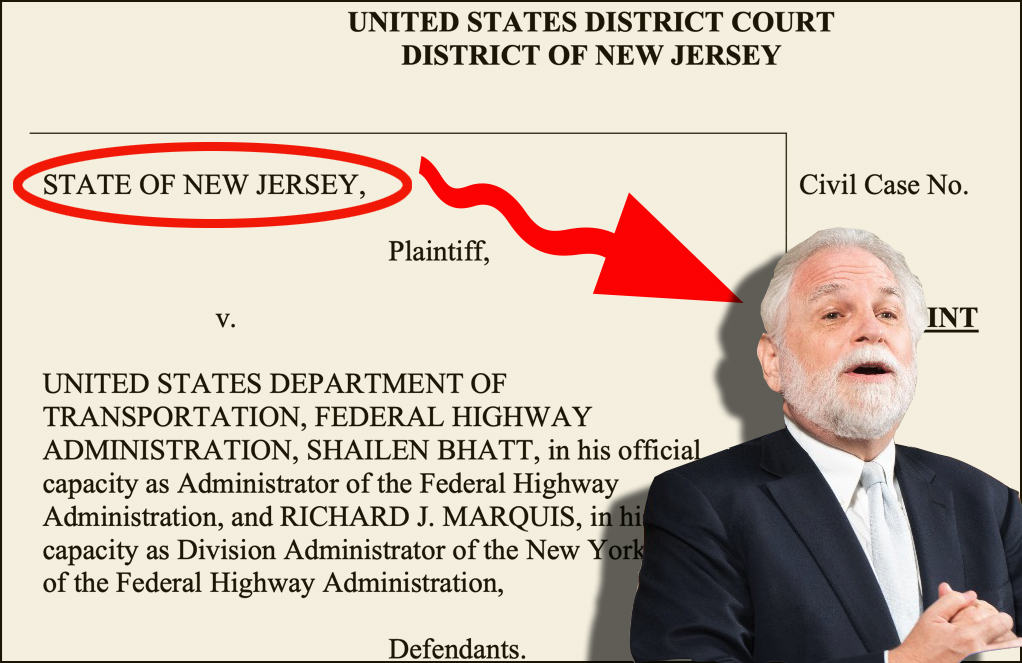A Powerful New Tool to Deter Traffic Violence — If Law Enforcers Use It
4:07 PM EDT on June 3, 2014
Last Thursday, the New York City Council passed Intro 238. This legislation makes it a misdemeanor for drivers to strike pedestrians or cyclists who have the right of way. Intro 238 has the potential to dramatically change driver behavior and advance the Vision Zero program of eliminating traffic fatalities. But without enforcement by NYPD and prosecutors, Intro 238 will be no more than an unheeded "message in a bottle."
What makes Intro 238 potentially so revolutionary? And why should we expect law enforcement to embrace it? To answer those questions, let's do a quick review of how and why this legislation came to pass.
The need for criminal penalties to deter reckless driving is plain from the story of Ally Liao, told by her parents in City Council testimony this April supporting Intro 238 (videotape here). Allie was crossing hand-in-hand with her grandmother, in the crosswalk with the “Walk” signal, when a driver turned into them and killed her. The driver told police that he had looked for pedestrians in the crosswalk and hadn’t seen any. Police then told the Daily News that Ally had “broken free” from her grandmother, suggesting that the entire incident should be treated as a "tragic accident" befalling a rambunctious and poorly-supervised child.
But the video tells a very different story -- one that plays out hundreds of times each year on New York City streets. Ally and her grandmother followed all the rules, but the driver still faced few consequences for killing her.
The city should make it a crime to drive this recklessly. That is the basic idea behind Intro 238, which originated with a proposal first discussed with candidates in StreetsPAC endorsement interviews, then published here on Streetsblog, and then lobbied for by Transportation Alternatives, Families for Safe Streets, and many others.
Following the April hearing, the City Council amended Intro 238 to protect not only pedestrians, but also cyclists. The law will take effect 60 days after it is signed by Mayor de Blasio, who at his January Vision Zero press conference acknowledged that reckless drivers "do not face sufficient consequences."
Why Intro 238 Is Different From Other Laws
Intro 238 is different from existing laws regulating reckless driving because it provides for criminal penalties on a "strict liability" basis.
A misdemeanor charge is categorically more serious than a traffic violation. The offender is arrested, and then must appear in court and enter a plea. A plea of guilty or a conviction means a permanent, public criminal record. First-time misdemeanor offenders may not be sentenced to imprisonment, but it can happen. In contrast, common traffic offenses like "failure to yield" or "failure to use due care" -- the violations that the driver in the Liao case was charged with -- have in practice proven to mean fines and nothing more.
Relying on traffic violations to punish and deter reckless driving poses a second problem as well -- NYPD's unwritten "observed violation" rule (explained by Ray Kelly here). NYPD will only seriously investigate traffic violations that are not personally observed by a police officer if the violations result in life-threatening injury or death. In thousands of other cases involving serious injuries, police will not issue a traffic violation unless an officer happened to observe it.
The "strict liability" approach of Intro 238 is the second feature that sets it apart from existing criminal laws regulating driving. Courts have misconstrued these laws to require proof of "moral blameworthiness," conscious disregard of a known risk by the driver, or at least a "gross deviation in failing to perceive risk." It is very hard for prosecutors to prove such "culpable mental states" beyond a reasonable doubt, so these laws are rarely enforced against sober reckless drivers.
How Does Intro 238 Work?
Intro 238 applies criminal penalties on a “strict liability” basis: If you are at fault in striking a person who has the right of way, you are guilty even if you did not intend to cause harm or were completely oblivious to the risks. This should mean an end not only to strained inquiries into a driver’s "culpable mental state," but also an end to the "rule of two" -- the rarely-applied, judge-made rule by which a culpable mental state can in theory be inferred from a driver’s commission of two or more traffic violations.
Under Intro 238, a driver who strikes a pedestrian or cyclist with the right of way should be presumed to have committed a misdemeanor, unless and until the driver can show lack of fault on his or her part. This "presumption of criminality" should mean that police responding to a crash will treat it as a crime investigation. As in any crime investigation, if there is sufficient credible evidence to establish probable cause that the crime was committed, there should be an arrest.
How would this work in practice? Police should ask a driver who has injured a pedestrian or cyclist who likely had the right of way not only, "Did you see them?" but also, "Where were you looking?" and, "Why didn’t you see them?" Just as police officers now routinely ask persons suspected of marijuana use to consent to a search ("turn out your pockets"), under Intro 238 police should be asking drivers involved in crashes to voluntarily allow a cell phone exam or a download from the vehicle’s event data recorder.
Crash victims should not expect a "no stone unturned" investigation, but any investigation at all will in most cases be a vast improvement. If, after considering the available evidence, the police officers believe it is probable that the driver violated Intro 238, and that the driver was at least in part at fault, there should be an arrest and a criminal charge.
Will Intro 238 Be Enforced or Not?
Unless Intro 238 is communicated repeatedly to rank and file police officers via memorandum, roll call instructions, and formal in-service trainings, most police officers will not even become aware of the new law. And awareness is just the starting point. Intro 238 runs counter to the general belief held by many officers that a traffic crash is by definition a non-criminal matter, peripheral at best to the core police mission of fighting crime. Many prosecutors hold this view as well. And, of course, there are crimes more serious than misdemeanors -- and misdemeanors other than reckless driving -- that require attention. These are all reasons why implementation of Intro 238 presents serious and difficult challenges.
The point of urging police and prosecutors to enforce Intro 238 is so that the new law will be carried out and, ultimately, drivers will get the message. NYPD and DOT should do direct public education of drivers. Most importantly, New Yorkers should know their rights and insist that police responding to a crash scene take not only a crash report but also a "complaint report" -- that is, a report of a criminal complaint. Each time Intro 238’s message is communicated, we’ll be getting a little closer to Vision Zero -- and to justice for Ally Liao and thousands of other crash victims.
Stay in touch
Sign up for our free newsletter
More from Streetsblog New York City
Deal Reached: Hochul Says ‘Sammy’s Law’ Will Pass
The bill, though imperfect, has been four years in the making.
Komanoff: A ‘Noise Tax’ Can Ground NYC Helicopters
A proposed $400 “noise tax” on “nonessential” flights is a start — and it will work.
Thursday’s Headlines: Welcome to the War on Cars, Scientific American
Our favorite story yesterday was this editorial in an unexpected place. Plus other news.
Meet the MTA Board Member and Congestion Pricing Foe Who Uses Bridges and Tunnels For Free Every Day
Mack drives over the transportation authority's bridges and tunnels thanks to a rare perk of which he is the primary beneficent.
Randy Mastro Aspires to Join Mayor’s Inner Circle of Congestion Pricing Foes
The mayor's reported pick to run the city Law Department is former deputy mayor under Rudy Giuliani and notorious foe of bike lanes and congestion pricing.
